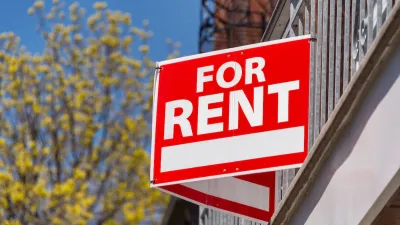New data points to the continued worsening of rental housing affordability. Due to a lack of federal response, some state and municipal governments are taking matters into their own hands in an attempt to add to their supply of affordable housing.
The 2016 State of the Nation’s Housing Report published by Harvard’s Joint Center for Housing Studies once again points to the continued worsening of rental housing affordability as a significant societal issue calling for a more concerted response. Citing recent data from the American Community Survey, the report found that the number of renters facing housing cost burdens (i.e. paying more than 30 percent of their income for housing costs) hit another record high of 21.3 million, which is just about half of all renter households in the nation. More concerning, the number of people facing severe cost burdens (devoting more than half their income to housing), also reached a new record of 11.4 million. The report documents how the affordability crisis is getting new and greater policy attention, particularly at the state and local level. Indeed, with federal response failing to keep up with the need, a growing number of state and municipal governments have been taking matters into their own hands in attempts to add to the supply of affordable housing.
Affordability problems are nearly universal for the lowest income households. For those making $15,000 per year—roughly the equivalent of full time work at the federal minimum wage—83 percent are housing cost burdened. For most of these households, the level of burden is severe, with 72 percent of the lowest-income renters and 66 percent of the lowest-income owners paying over half their monthly household incomes towards housing.
But cost burdens are not limited to low-income households. They are increasingly climbing up the income scale to reach more and more moderate-income households.
FULL STORY: As Affordability Worsens, State and Local Governments Act on their Own

Alabama: Trump Terminates Settlements for Black Communities Harmed By Raw Sewage
Trump deemed the landmark civil rights agreement “illegal DEI and environmental justice policy.”

Planetizen Federal Action Tracker
A weekly monitor of how Trump’s orders and actions are impacting planners and planning in America.

The 120 Year Old Tiny Home Villages That Sheltered San Francisco’s Earthquake Refugees
More than a century ago, San Francisco mobilized to house thousands of residents displaced by the 1906 earthquake. Could their strategy offer a model for the present?

In Both Crashes and Crime, Public Transportation is Far Safer than Driving
Contrary to popular assumptions, public transportation has far lower crash and crime rates than automobile travel. For safer communities, improve and encourage transit travel.

Report: Zoning Reforms Should Complement Nashville’s Ambitious Transit Plan
Without reform, restrictive zoning codes will limit the impact of the city’s planned transit expansion and could exclude some of the residents who depend on transit the most.

Judge Orders Release of Frozen IRA, IIJA Funding
The decision is a victory for environmental groups who charged that freezing funds for critical infrastructure and disaster response programs caused “real and irreparable harm” to communities.
Urban Design for Planners 1: Software Tools
This six-course series explores essential urban design concepts using open source software and equips planners with the tools they need to participate fully in the urban design process.
Planning for Universal Design
Learn the tools for implementing Universal Design in planning regulations.
Clanton & Associates, Inc.
Jessamine County Fiscal Court
Institute for Housing and Urban Development Studies (IHS)
City of Grandview
Harvard GSD Executive Education
Toledo-Lucas County Plan Commissions
Salt Lake City
NYU Wagner Graduate School of Public Service





























